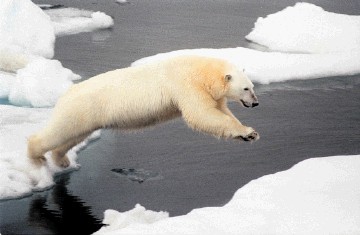
Royal Dutch Shell has halted its drilling in the Arctic one day after the work began as sea ice moved towards its drillship off Alaska, putting what the oil company has called “a historic move” on temporary hold.
Shell Alaska spokesman Curtis Smith said drilling was stopped as a precautionary measure and would resume when the ice, which measures about 30 by 12 miles, had moved on. The delay could be a couple of days or more, he added.
Sunday’s start of Arctic Ocean drilling came after years of lobbying by Shell and plenty of bitter opposition from environmental groups, which say oil companies have not shown they can clean up an oil spill in ice-choked water.
“It’s the first time a drillbit has touched the seafloor in the US Chukchi Sea in more than two decades,” said Shell Alaska vice-president Pete Slaiby.
The oil giant was given permission last month to begin preliminary work on an exploratory well.
Its oilspill-response barge has not been certified but Shell is authorised to drill pilot holes that do not descend into oil reservoirs.
Shell’s Burger prospect is 70 miles off north-west Alaska. The company began monitoring the vast piece of ice on Sunday when it was 105 miles away.
Mr Smith said the ice was moving at the rate of one mile every two hours.
He added: “We’re using satellite images, radar images and on-site reconnaissance to watch this ice so there are no surprises.
“Part of working in ice is having the ability to temporarily relocate.
“You never want to stop operations when your crews and your equipment are working smoothly but this is what it means to work safely in the Arctic.”
Shell has spent more than £2.8billion for Arctic Ocean drilling but has been thwarted by environmental lawsuits, regulatory requirements and short open-water drilling seasons.
Environmental groups say a spill of the magnitude of the Deepwater Horizon blowout in the Gulf of Mexico in 2010 would be catastrophic in a region hammered by climate warming and home to endangered or threatened marine mammals such as bowhead whales, polar bears and walruses.